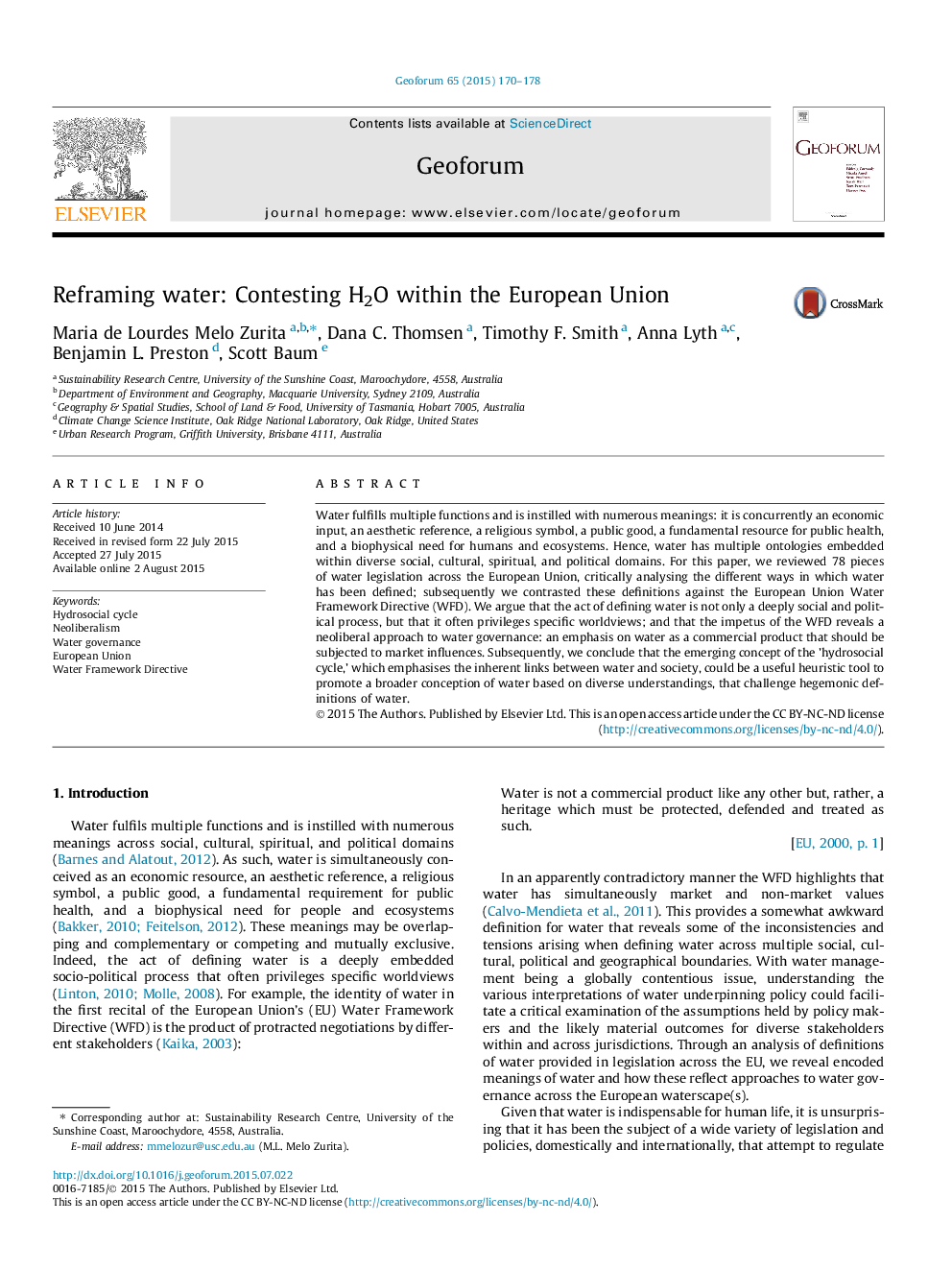| Article ID | Journal | Published Year | Pages | File Type |
|---|---|---|---|---|
| 5073802 | Geoforum | 2015 | 9 Pages |
â¢Analyses the emergence of the EU's Water Framework Directive.â¢Revises 78 pieces of water legislation within the EU.â¢Contrasts water definitions provided in national water acts and the WFD.â¢Uses hydrosocial cycle concept to illustrate asymmetries between water definitions.â¢Declares that the WFD needs to promote a multi-dimensional definition of water.
Water fulfills multiple functions and is instilled with numerous meanings: it is concurrently an economic input, an aesthetic reference, a religious symbol, a public good, a fundamental resource for public health, and a biophysical need for humans and ecosystems. Hence, water has multiple ontologies embedded within diverse social, cultural, spiritual, and political domains. For this paper, we reviewed 78 pieces of water legislation across the European Union, critically analysing the different ways in which water has been defined; subsequently we contrasted these definitions against the European Union Water Framework Directive (WFD). We argue that the act of defining water is not only a deeply social and political process, but that it often privileges specific worldviews; and that the impetus of the WFD reveals a neoliberal approach to water governance: an emphasis on water as a commercial product that should be subjected to market influences. Subsequently, we conclude that the emerging concept of the 'hydrosocial cycle,' which emphasises the inherent links between water and society, could be a useful heuristic tool to promote a broader conception of water based on diverse understandings, that challenge hegemonic definitions of water.
